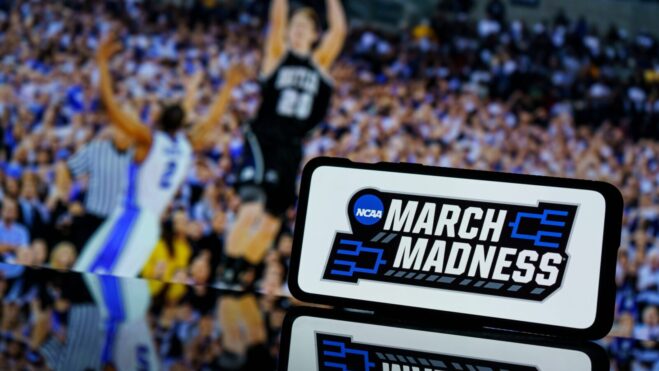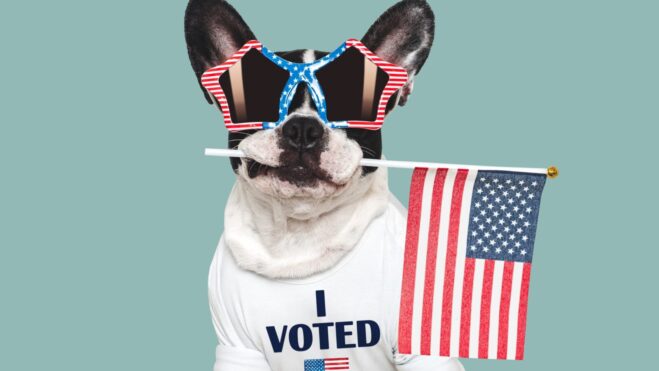AGA Survey Says: Americans More Accepting Than Ever Of Gambling, Sports Betting
There’s been a shift in how people view the activities
4 min

The acceptance of casino gaming and sports betting as mainstream forms of entertainment in the U.S. has grown significantly, reflecting a shift in public perception that views these industries not only as responsible but also as valuable contributors to local communities.
A new survey sponsored by the American Gaming Association (AGA), and conducted by Kantar Group Ltd., underscores this trend. The findings show that Americans are increasingly supportive of legal gambling and confident in the industry’s commitment to responsible practices.
The survey results indicate that 75% of Americans feel the gaming industry acts responsibly in their respective communities. Additionally, nine out of 10 Americans now regard sports betting as an acceptable form of entertainment. This broad acceptance is further evidenced by the fact that 75% of Americans support the legalization of sports betting in their home states.
Joe Maloney, the AGA’s Senior VP of Strategic Communications, commented on these findings, noting that the data reflects a consistent trend over recent years. With the expansion of iGaming and online sports betting, Americans are recognizing the advantages of a regulated marketplace that provides entertainment while also taking its responsible gaming (RG) duties seriously as it contributes to local economies.
A particularly noteworthy finding from the survey is the significant increase in the public’s positive views on the gaming industry’s commitment to responsible practices. According to the survey, 65% of Americans now believe that the gaming industry is dedicated to promoting RG, and combating problem gambling, up from 55% the previous year.
This perception is even more pronounced among those who actively engage with the industry: 81% of physical casino players and 88% of sports bettors agree that the industry is committed to RG programs. This marks a substantial increase from 70% and 78%, respectively, in 2022.
Catalysts behind the shift
The shift in public perception appears to be largely influenced by the gaming industry’s commitment to responsible marketing and advertising practices. According to the survey, 65% of respondents now believe that the industry is honest in its marketing efforts, an increase from 58% the previous year.
Additionally, 73% of Americans consider the industry’s marketing to be responsible, compared to 68% in 2022. These numbers indicate that the public is becoming more aware of, and appreciative of, the industry’s efforts to market its products in a way that is both transparent and sensitive to potential risks.
The effectiveness of RG programs is another area where the industry has made considerable progress. The survey reveals that 66% of Americans believe these programs are effective, up from 59% in the previous year. Confidence in these programs is even higher among those who participate in gaming, with 79% of physical casino players and 85% of sports bettors acknowledging their effectiveness.
The study also points to a growing awareness of responsible gaming messages among the American public. A significant portion—46% of land-based casino players and 57% of sports bettors—reported increased exposure to responsible gaming information.
Overall, 66% of Americans stated they encountered responsible gaming messaging within the past year, an increase from 56% in 2022. This rise in visibility suggests that the industry’s efforts to highlight the importance of responsible gaming are resonating with the public.
Sports betting’s meteoric rise
Legal sports betting in the U.S. has seen a remarkable rise since the Supreme Court’s 2018 decision to overturn the Professional and Amateur Sports Protection Act (PASPA), which opened the door for states to legalize and regulate sports betting. This ruling opened the door for states to create their own legal frameworks, leading to a surge in the number of states offering legal sports wagering. As of 2024, more than 35 states, along with the District of Columbia, have legalized sports betting, with several others actively considering legislation.
The rapid expansion of legal sports betting, despite some resistance, has been fueled by a combination of factors, including widespread consumer interest, state governments’ desire for additional tax revenues, and the increasing acceptance of sports betting as a mainstream form of entertainment. As more states have embraced legal sports betting, the industry has seen exponential growth in both revenue and participation.
In 2022, the legal U.S. sports betting market generated nearly $93 billion in wagers, resulting in significant tax revenue for state governments and further investment in the industry. Last year, that figure jumped to over $11 billion.
One of the most compelling examples of the growth in legal sports betting is New Jersey, which was one of the first states to launch legal sports betting after the PASPA ruling. New Jersey quickly became a leader in the market, consistently posting monthly betting handle figures that rivaled or exceeded those of Nevada, the historical epicenter of U.S. sports betting.
In 2023, New York also became a major player in the industry. The state generated record-breaking numbers in terms of betting volume within its first year of legal online sports betting. The handle was $19.64 billion, 20% higher than a year earlier.
Just getting started
As the 2024 football season kicks off, this growth is expected to continue. Football, particularly the NFL, is the most bet-on sport in the U.S., and the start of the season typically brings a significant uptick in betting activity. This seasonal spike is anticipated to further boost traffic to online sportsbooks.
The accessibility and convenience of online sportsbooks allow fans to place bets from anywhere within state lines, contributing to the growth in the number of bettors and the amount wagered. This increase in sports betting activity often has a ripple effect, driving traffic to online casinos as well.
Many online sportsbooks are integrated with online casino platforms, and the ease of switching between sports betting and casino games on the same platform encourages crossover play. As a result, the football season doesn’t just boost sportsbook activity but also contributes to higher engagement and revenue for online casinos.
For instance, Pennsylvania has seen a significant increase in both sports betting and online casino revenue since the state legalized both activities. During the 2023 football season, Pennsylvania reported record-high betting handles and corresponding growth in online casino revenues, reflecting the symbiotic relationship between these two segments of the online gaming industry.
Similarly, Michigan, which offers both legal sports betting and online casinos, has experienced substantial growth in online gaming activity. This has been particularly evident during peak sports seasons like the NFL and college football seasons.
Legal sports betting in the U.S. continues to grow at a rapid pace, driven by widespread legalization, consumer demand, and the ongoing integration of online sports betting and casino gaming. The 2024 football season is expected to further amplify this trend, as the NFL remains a significant driver of betting activity, leading to increased traffic on online sportsbooks and, subsequently, online casinos.





